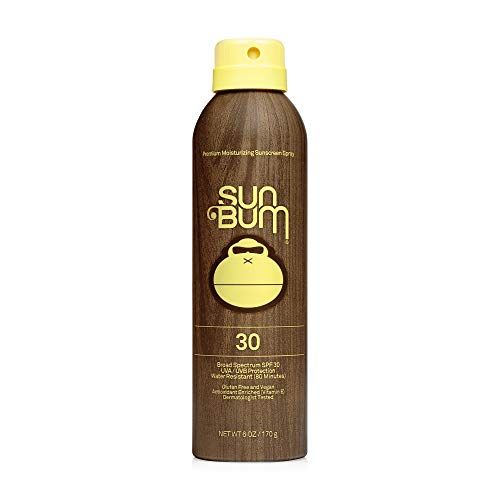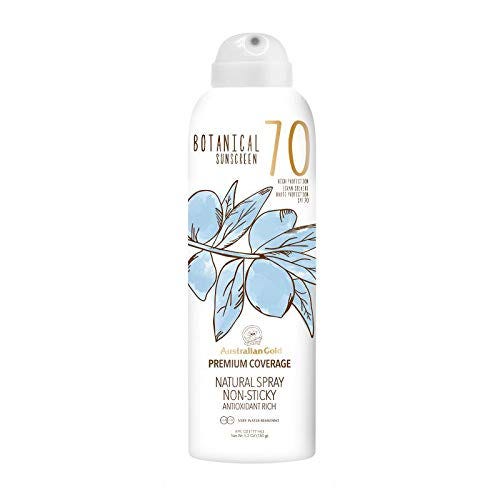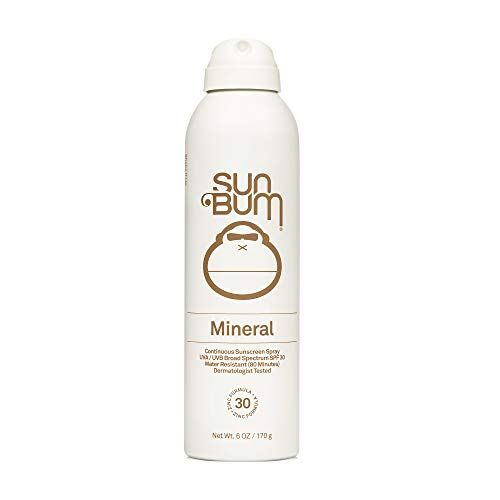10 Best Spray Sunscreens for All-Year Protection
Protecting your skin from the sun's damaging rays has never been easier.

We earn a commission for products purchased through some links in this article. Why Trust Us?
Warmer temperatures are fast approaching, meaning you may soon be wearing less clothing on your long runs or gearing up to put on your favorite swimsuit for a trip to the beach. Unfortunately, less clothing means more exposure to harmful UV rays, which can lead to sunburns, premature aging, and even skin cancer. Luckily, you don't have to stay indoors all summer to avoid damaging your skin: all it takes is practicing safe sun.
While traditional cream or gel sunscreens can be messy and difficult to put on, spray sunscreen application is a cinch, making it easy to protect those hard-to-reach places, even when you're applying it on your own. Since there is a huge variety of sunscreen options out there, we've gathered some of our favorites to help make the shopping process a bit easier. Look below for buying advice to help you find the spray sunscreen that's right for you.
How to Choose a Spray Sunscreen
While all sunscreen has one thing in common—the ability to protect your skin from the sun's damaging rays—there are some marked differences that will affect how it performs, how it feels on your skin, and its longevity.
SPF
The most important thing to consider when choosing a sunscreen is the SPF level—most sunscreens will range from 15 up to 100 SPF—though there's not much of an increase in protection beyond SPF 50, so don't be too worried if the sunscreen you like doesn't have the highest SPF level. However, if you are going to be in direct sunlight for an extended period of time, you should use SPF 40 or higher, and reapply your sunscreen at least every two hours.
Mineral vs. Chemical
Mineral and chemical sunscreens are the two types you're most likely to encounter. Mineral sunscreens—which are typically zinc-based—sit on top of the skin and create a physical barrier so that the sun cannot penetrate your skin. This means they may leave a bit of a residue or white film on your skin when applied properly, but this type of sunscreen is also generally better for sensitive skin. Chemical sunscreens actually soak into the skin, absorb UV rays, and turn those rays into heat, allowing them to dissipate without causing damage.
Water Resistance
If you are going to be in the water, or may be sweating heavily, you will want to be sure that your sunscreen is water-resistant. If it's not, it could come off and leave you unprotected. Note that some sunscreens will claim to be "waterproof," but that designation isn't quite correct. Any sunscreen will eventually wash off in the water over time and will need to be reapplied.
How We Selected
To determine the best spray sunscreens on the market, we looked at expert-tested reviews from trusted sources like Best Products and Healthline. We then took into account price, ingredients, SPF level, on-skin feel, and longevity. Finally, we consulted more than 42,000 reviews, written by people who’ve bought these spray sunscreens on sites like Amazon, to bring you the best varieties on the market.
Before joining Runner's World, Gabrielle Hondorp spent 6 years in running retail (she has tested top gear from shoes, to watches, to rain jackets which has expanded her expertise—and her closets); she specializes in health and wellness, and is an expert on running gear from head-to-toe. Gabi began her journalism career as a Digital Editorial Fellow for Runner’s World and Bicycling Magazine, and has since advanced to a Runner's World Editor specializing in commerce. She has a double degree in English and Media and Communication from Muhlenberg College where she also ran cross country and track.

Readers Also Read
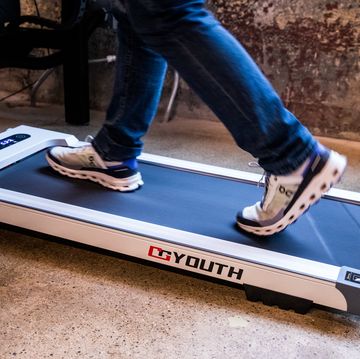
The 7 Best Walking Pads for Your Home Office

Shin Splints: Causes, Treatments, and Prevention
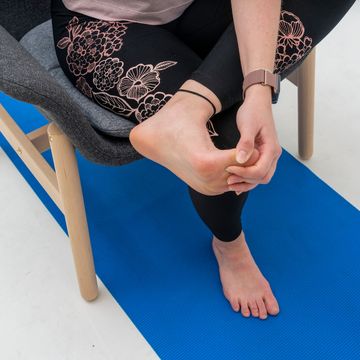
7 Exercises to Help Nix Plantar Fasciitis Pain

A Word of Caution for Anyone Taking Melatonin



